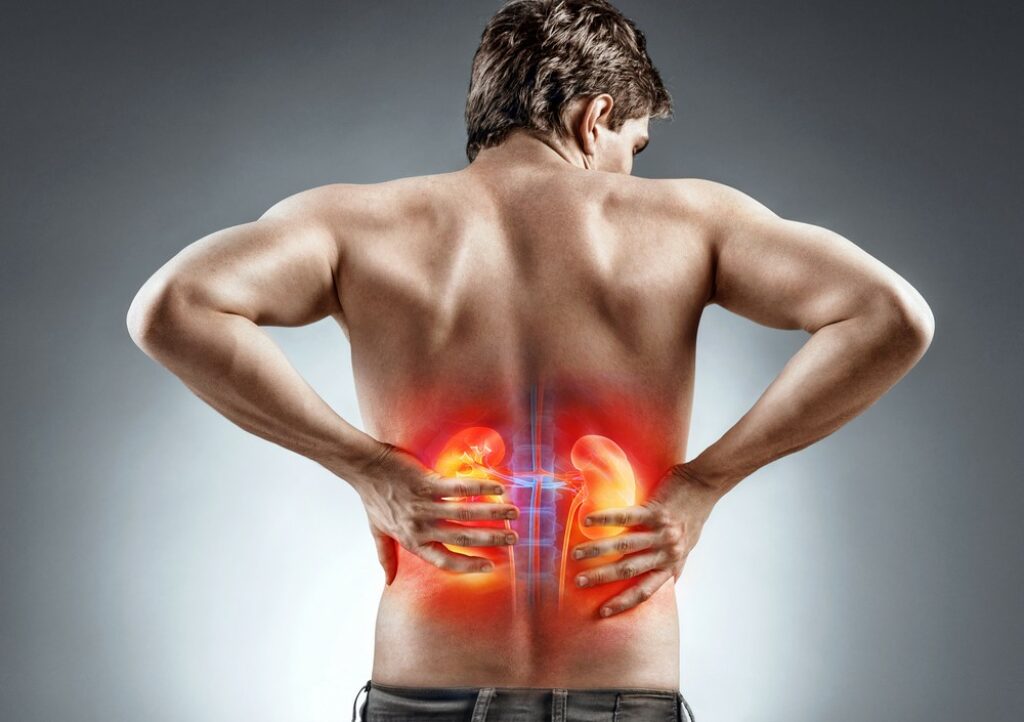
Signs and Treatments for Kidney Disease
Our kidneys play a crucial role in our overall health. When all is normal, these two small yet powerful organs are hard at work eliminating excess sugars, toxins and other harmful or unusable substances from what we consume. But if they become diseased, this process begins to deteriorate.
Related Topics (Sponsored Ads):
Kidney disease, also known as chronic kidney disease (CKD), is a condition in which the kidneys gradually lose their ability to filter waste from the blood. If left untreated, CKD can lead to various complications, including high blood pressure, anemia, weak bones, poor nutritional health, and nerve damage. Like many other diseases, prevention is much easier than curing. Therefore, it’s absolutely vital to do whatever you can to protect your kidneys and keep them healthy, as well as taking action right away if you notice anything amiss.
This article will help you to gain in – depth insights regarding the symptoms and specific treatments for kidney disease. This important information will help readers understand the condition better and guide them towards prevention and management strategies.

Symptoms of Kidney Disease
The symptoms of kidney disease may vary, depending on the stage of the condition. Common symptoms include fatigue, trouble concentrating, poor appetite, trouble sleeping, muscle cramping, swollen feet and ankles, dry and itchy skin, and increased urination.
In more advanced stages, symptoms may include nausea, vomiting, loss of appetite, swelling, shortness of breath, and changes in urination. It is important to note that not everyone with kidney disease experiences symptoms, especially in the early stages. Regular monitoring through routine blood work is crucial for early detection.
Treatments
The treatment of kidney disease aims to address the underlying cause, slow the progression of the condition, and manage complications. The specific treatment options for this serious disease include medication, lifestyle changes, dietary modifications, dialysis, and kidney transplantation.
Medications may be prescribed to control blood pressure, manage blood sugar levels, and treat conditions that contribute to kidney damage. Lifestyle changes such as regular exercise, maintaining a healthy weight, and quitting smoking can help improve kidney health. Dietary modifications, including reducing salt and protein intake, may also be recommended. Dialysis, a procedure that filters waste products and excess fluid from the blood, is used when kidney function is severely impaired. In some cases, kidney transplantation may be necessary to replace the failed kidneys with a healthy kidney from a donor. The donor may be a friend, relative, or even a complete stranger.
Risk Factors
Several factors increase the risk of developing kidney disease. These include diabetes and high blood pressure, which are the primary causes of CKD. Other risk factors include a family history of kidney failure, older age, and belonging to certain population groups.
Additionally, conditions such as glomerulonephritis, inherited diseases like polycystic kidney disease, kidney and urinary tract abnormalities before birth, autoimmune diseases, and obstructions caused by kidney stones or tumors can also affect kidney function. Lifestyle factors like smoking, obesity, and certain medications can further contribute to the risk of developing kidney disease.
Diagnosis
To properly diagnose kidney disease, doctors perform blood and urine tests to assess kidney function and confirm the condition. These tests measure the levels of waste products, electrolytes, and other substances in the blood and urine. Additionally, imaging tests like ultrasounds and biopsies may be conducted to evaluate the structure and function of the kidneys. Early detection is crucial for effective management and prevention of further complications.
Prognosis and Complications
The prognosis for kidney disease varies depending on the stage of the condition and the underlying cause. Early detection and treatment can help slow the progression of CKD and prevent kidney failure. However, if ignored or in advanced stages, kidney disease can lead to end-stage renal disease (ESRD), requiring dialysis or kidney transplantation for survival. Unfortunately, it can take a while to receive the transplant from a suitable donor.
Complications of kidney disease include high blood pressure, anemia, weak bones, poor nutritional health, and nerve damage. Managing these complications is essential for improving the quality of life for individuals with kidney disease.
Preventative Tips
Prevention plays a crucial role in managing kidney disease. Adopting a healthy lifestyle can help reduce the risk and slow the progression of kidney disease. Some preventative tips include:
-Maintaining a balanced diet: Limiting sodium and sugars, phosphorus, and potassium intake, and consuming a diet rich in fruits, vegetables, whole grains, and lean proteins.
-Managing blood pressure and diabetes: Regular monitoring, medication adherence, and lifestyle modifications can help control these conditions, which are leading causes of kidney disease.
-Staying hydrated: Drinking an adequate amount of water helps maintain kidney function and flush out toxins.
-Avoiding smoking and excessive alcohol consumption: These habits can contribute to kidney damage.
-Regular exercise: Engaging in physical activity can help maintain a healthy weight and improve overall health.
Final Thoughts
Kidney disease is a progressive condition that can lead to various complications if left untreated for a prolonged period. Recognizing the symptoms, understanding the risk factors, and seeking early diagnosis are crucial for effective management and prevention. Also, regular consultation with healthcare professionals is essential for monitoring kidney function and receiving appropriate care.




